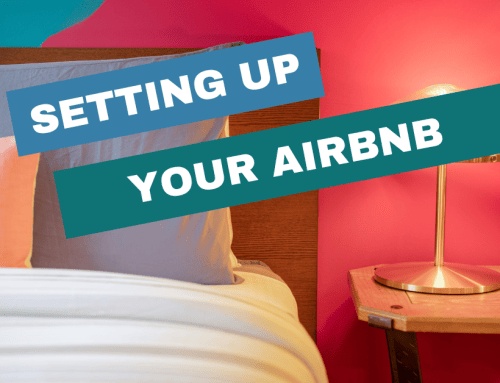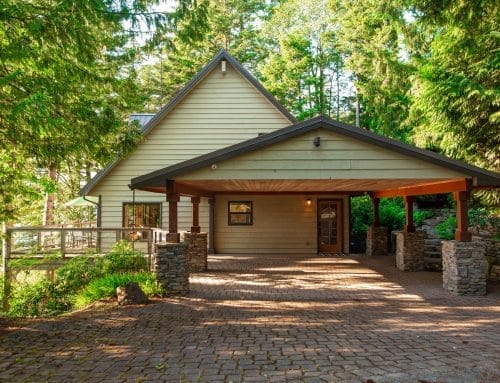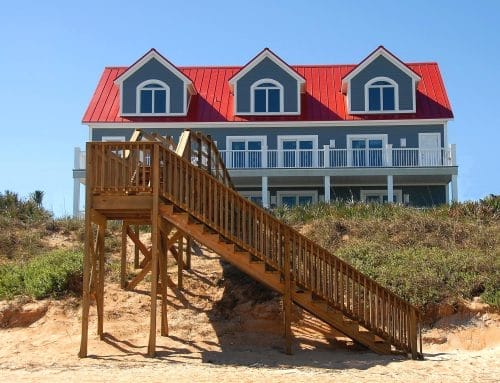The Guide to Short-Term Rental Insurance
Renting out your home or a secondary property can be a terrific source of extra income, but the extra cash flow is not without its risks. With so many different guests coming and going, short-term rental properties face a heightened possibility of suffering accidental damage—not to mention the usual risk of fires, floods, or windstorms.
How can you protect your short-term rental property? Here’s everything you need to know about short-term rentals and insurance.
What is short-term rental insurance?
Short-term rental insurance is home insurance that’s tailored to meet the needs of a homeowner or landlord who rents out their property on a short-term basis. The length of time that’s considered “short-term” depends on the insurance company; with most, rentals of up to 6 months are usually considered short-term.
When it comes to home insurance, the occupancy of the home is important, and vacation rentals are a unique form of occupancy. “Occupancy” describes who lives in the home and how it’s used; owner-occupied, long-term rental, and vacant are all forms of occupancy.
Every home insurance policy states which occupancy type is insured. If the occupancy changes, the customer must inform their insurance company of the change. If they fail to do so, their policy can be rendered void, causing their insurer to deny any claims or cancel the policy outright.
So, short-term rental insurance exists so homeowners who occasionally rent out their home through Airbnb or VRBO can still have valid home insurance.
If you own an investment property, you may wish to use it as a short-term rental permanently. In this case, you’d buy a landlord insurance policy—but you’ll still need to inform your insurer of your intentions.
Some insurance companies consider short-term rentals higher risk, and simply won’t insure them. Other insurers treat short-term rentals as business operations, which some home insurance policies typically won’t cover.
Before you rent out your home or your investment property, speak with your insurance provider to ensure that they offer short-term rental coverage—and if they do, adjust your policy accordingly.
What’s covered by hosting sites?
Hosting sites like Airbnb or VRBO do offer some coverage to owners who list rentals on their platforms.
Airbnb automatically supplies two forms of coverage for hosts. These are known as Airbnb Host Protection and Airbnb’s Host Guarantee:
- Airbnb Host Protection offers up to $1 million USD in liability coverage. This coverage applies only to the host’s legal responsibility, covering situations where the host is legally obligated to pay damages. For example, if a guest is injured on the property and the host is found liable, Airbnb’s coverage may respond. Or, if the guests damage a neighbour’s property, Host Protection may also cover the owner’s liability in that scenario.
- Airbnb’s Host Guarantee, meanwhile, offers up to $1 million USD in coverage for the host’s property if guests damage it. The coverage is automatic, meaning that hosts don’t have to opt-in. It may reimburse hosts for damage to their property or their belongings if guests cause the damage.
VRBO, meanwhile, offers only liability coverage. VRBO’s coverage also carries a $1 million limit and is included with all stays booked through the platform. Hosts who use VRBO need to find their own coverage for damage to their property caused by guests.
Do hosting sites provide enough coverage?
The $1 million liability coverage that both Airbnb and VRBO offer sounds like a lot. But liability damages can reach or exceed that amount easily; many home insurance providers recommend at least $1-2 million in liability coverage for a typical homeowner. With the added risk that comes with having strangers in and out of your property, you may wish to have a higher limit.
More importantly, though: the coverage provided by Airbnb and VRBO does not replace home insurance. It can be supplemental to home insurance when it comes to liability and damage directly relating to your guests, but home insurance exists to cover a much wider range of losses.
Buying the right policy will ensure that you have your own protection in place, instead of hoping that the rental platform’s coverage will be responsive and adequate if you suffer a loss.
What’s covered by home insurance?
Home insurance covers a wide variety of losses and often provides more comprehensive protection for your property.
For example, the coverage offered by Airbnb or VRBO doesn’t cover loss from natural disasters, which are more likely to cause catastrophic damage to the home than your guests. Home insurance policies cover many such losses, especially if you have a comprehensive policy.
If you do have a comprehensive home insurance policy for your short-term rental, you’ll have protection against fires, burst pipes, hailstorms, and plenty more (all depending on the specifics of your policy). Some home insurance policies will offer additional coverage for damage caused by guests, particularly if the damage is accidental.
What’s more, home insurance carries additional liability coverage. You can choose a higher limit than what the hosting sites offer, and it applies to a broader range of scenarios. Because Airbnb and VRBO’s liability coverage is automatic, you’ll have two sources of coverage to ensure that you’re protected against the widest possible range of losses.
Some home insurance policies can also cover lost rental income if your rental suite is unoccupiable due to insured damage. For example, if your rental suite suffers a fire, your policy could pay the lost rental income you would have earned while it’s closed for repairs.
One important thing to note:
Neither home insurance nor Airbnb or VRBO insure your guests’ belongings. If their stuff is damaged or lost while staying at your property, they’ll need their own personal property insurance (or travel property insurance) to cover it.
Does my current home insurance policy cover my rental?
To have coverage for your rental property, you need to tell your insurance provider how you’re using it.
If you haven’t told your insurer that you’re hosting short-term rentals, your policy is most likely already void. If you need to make a claim, your provider could deny it on the grounds that you misrepresented or failed to disclose the occupancy of the home—a serious breach of the conditions of any home insurance policy.
Even once you’ve informed your provider, they still must agree to cover the rental; many home insurance companies don’t cover short-term rental operations at all. In that case, you’d need to find a home insurer that does.
Do I need a separate vacation rental policy?
You don’t typically need a separate insurance policy for your vacation rental—but you do need the right home insurance policy.
If you’ve got a home insurance policy for your rental unit and your insurance provider has agreed to cover your short-term rental operations, you should be set (assuming your policy has high enough coverage limits).
Why you need proper insurance coverage for your short-term rental?
A short-term rental unit is a great way to bring in some extra cash, but if you’re stuck paying for an expensive loss, that cash flow can turn negative in the blink of an eye.
While hosting sites like Airbnb and VRBO can help cover some losses associated with hosting vacation rentals, they don’t address the myriad other risks that any home faces: natural disasters, break-ins, accidents, and who-knows-what else.
With a comprehensive home insurance policy covering your short-term rental, you can rest easier knowing that you’re not likely to find yourself paying piles of cash out-of-pocket for unpredictable events.
Find a home insurance provider that offers specialized coverage for short-term rentals.






